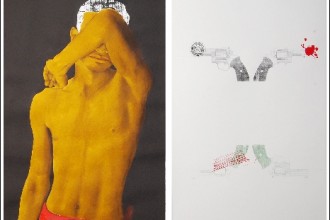By Zsolt Láng
Translated from Hungarian by Erika Mihálycsa
Hamlet
It almost seems not to be wine but pure spirit (15,5 % ABV). Born to be the king of wines. Of course, many a pot-bellied hangdog relative would like to get there first. With a cunning marriage (cuvée) they soak off the singular truth of the terroir. A full-bodied wine, even if not quite as robust as we might expect from the aroma, perhaps due to the high Malligand: the regal character is dominated by the excessive proportion of alcohol. It needs breathing, but even afterwards a somewhat thorny backbone of acidity is left behind. The excess of tannin reminds one of the past – that is, of fermentation. For the rest, it contains all the elements in adequate proportion: sweetness for the foreplay, pyruvates for the afterplay – and yet, structure fails to assemble. Some tartness going to waste. This is not ullage, nor barrel sweat, but some dark perplexity: the choking fumes of a morgue in summer, the silky thread of saliva dried in a corner of the mouth, the chalkiness of sperm stuck on pubic hair. There are perils to engaging the dead in conversation. It could only escape the convulsive grip of tannins by sleeping with its mother, that is, by devolving back into the barrel to give birth to itself anew. This presupposes, as we can easily see, no lesser thing than the mythical breaking of the law.
Othello
Sommeliers, the inexperienced especially, would sometimes call a Sauvignon a wine with an identity crisis because its bouquet is reminiscent of a Kadarka. However, there are wines whose essence lies in their identity crisis. They are both cockily self-confident and faint-hearted, strong and wilted. The wine’s colour turning to brown breeds suspicion, its sheer name calls forth headachy disappointments, but as soon as it is poured into the glass it sweeps everybody off their feet. At the apex of its triumphal march, however, midway in the sip its flight is broken. What is the cause? There are things with no explanation or rather, with an explanation that can be presented in one hundred and fifty-six ways. On the wine’s stage the battle of malic acid with the tannins lasts for three seconds only, but the full story starts from the moment the scion was planted in the earth. A true warlord of the cellar bottom: there he defeats everyone, but is quickly spent in the absence of black mould, becomes uncertain in the light and in the open, and mutely collapses into itself – or on the contrary, turns wildly splintered, its wicked alcohols stick out, destroying its exotic savour. Even among the noblest wines there are some that have to be tasted from the gourd, or drawn directly into the mouth in the dark of the cellar. The true Messiah arrives stealthily, like a thief.
Its colour, vintage, the fame of its terroir promise grandeur and the first part of the sip fulfills that promise. It reminds one of Beethoven’s Ninth where in the first movement’s fifth minute everything seems to have been said. Midway through the sip an unexpected turn occurs, bringing kitschy flavours. This is followed by the sign of voiding: paprika coarseness. It keeps swelling and scorching, as if the wine were itself indignant at what befell it. Is it irked by the fact that it has allowed itself to be led on by the tannic suggestions? Yes, it seems so. For if we leave it to rest for some time – presupposing some penchant for asceticism on our part – the acid-driven slaughter is replaced by a flood of subatomic aromas and savours. Wisdom dwells in this wine, even if it doesn’t yield itself easily. The astringency of the tannins spreads like the militant truth of matter. Its bouquet is like the kitchen of an old manor where the cupboard loaded with curds, tin boxes of flour, coffee and tea is just being aired, and through the open window the smell of the garden, of dead winter leaves and of earth dug up by the waking sprouts floats in. But underneath there are the dead laid at rest, countless dead, for the garden, the house, the whole estate was built on a graveyard.
Richard III
One of the most dramatic wines, even among the products of the Estate that is thoroughly committed to allowing only such grapevines to be trellised that can accommodate, if necessary, a whole Shakespeare play. Only a small quantity is produced and even that is the work of chance, for the vine-dresser was drunk at the time of planting and a few white grapevines of unknown variety were mixed among the black grafts. Only the housefolk, mostly the women keep visiting the barrel in the cellar corner, because its contents are completely different from the types known in the area. Due to yet another error, a jugful is drawn and brought to the guests’ table. After that there is no stopping it. They label it the wine of queens in jest and heap gold medals on it. Il Magnifico! It is by no means short of talent of course, it has abilities that can evolve, once it gets out into the open. It makes a masterly show of its misshapenness and of its ungainliness become suddenly fashionable. Its success is a drunken monkey business. Actors would sometimes choose the company of a colleague who has much to be modest about, so that their own talent shines all the brighter in comparison. Its pungent catpiss smell is praised as a prime asset. What is more, some take to sipping it from cathead-shaped glasses. It is advertised with obscene slogans like, “It will harden your manhood and lubricate your holeâ€. All this foreshadows global social decline. Fortunately they soon bring it to its knees. What truth needs is not a predicate but a subject.





